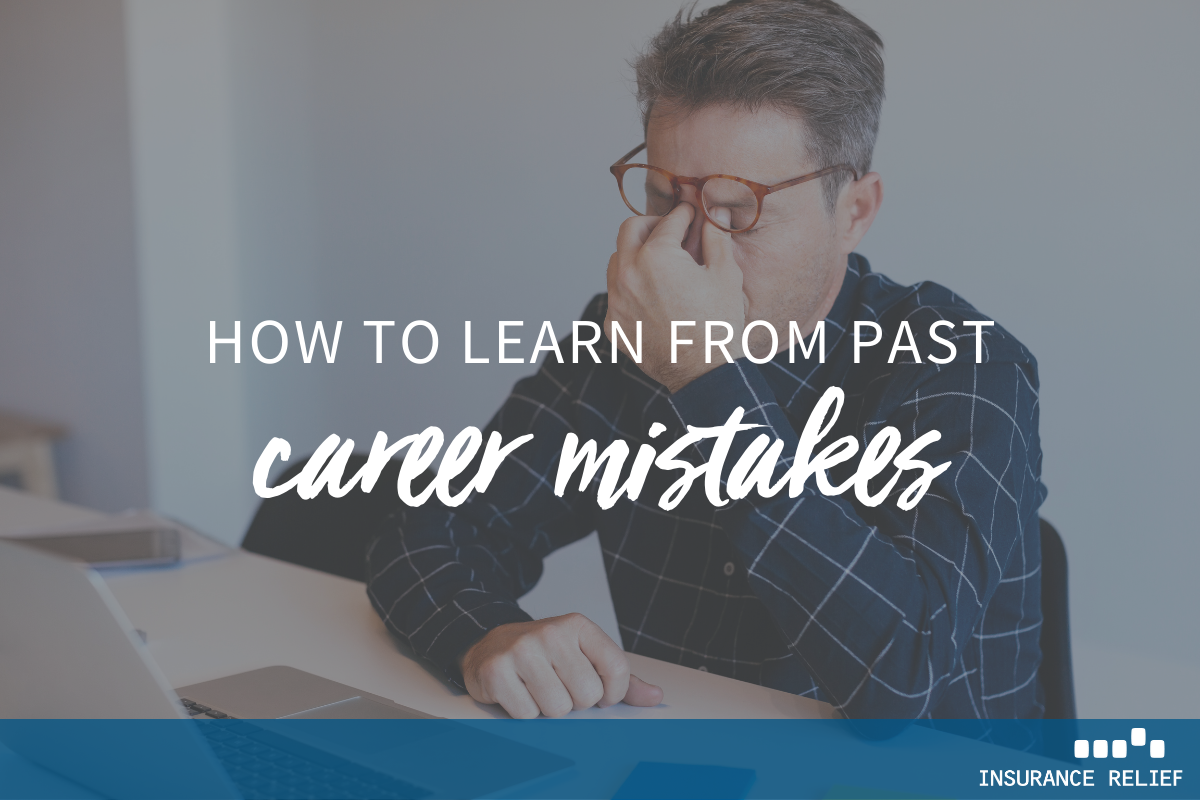4 Steps You Can Take To Help You Learn From Past Career Mistakes

Everyone makes mistakes. And if you believe you have made a career mistake, it can be very disheartening. But it may not be as bad as you think. It depends on how you look at it. Many considerations go into making career decisions. There are many moving parts, and what makes it look on the surface to be a black or white situation, may, upon closer inspection, be different shades of gray.
Here are some steps that can help you see those different shades.
1. Change your perspective
You may oversimplify things if you just think about good or bad, success or failure. Whether a career move was a mistake or not often depends on how you look at it. You need to gain a little objectivity when looking at the move. Look at the situation a little more dispassionately, see what insight you can gain from it, and use what you have learned to move ahead.
Using it as an opportunity to learn and grow, to gain resilience, maybe the most important thing here.
2. Realize the career ladder is not straight up
Many people believe that to be successful, they must methodically move up the career ladder, getting promoted from one job to the next in a smooth and orderly fashion.
But today, especially, careers seldom move in that way. There are so many variables involved that success may take a much more fluctuating or circuitous route. There are often ups and downs, and errors are made, with an element of unpredictability.
The notion of a smooth and steady climb is too idealistic.
3. You and your career are two different things
People too often attach their own sense of self-worth to their career success. But you are more than your career. Many things impact your performance in your job – your strengths and weaknesses, your interests, your personality.
It’s never an all-or-nothing proposition. What may be deemed a mistake in one aspect may be helpful in others. At the very least, taken as a learning experience, it can help you to assess where you really want to go or not go.
When we make decisions, we always risk error, but the error is a sign we strive to be better.
4. Accept constructive criticism
Others can offer helpful advice. They can show us where we need to see red flags and also listen to our concerns. But all of this is helpful only if you can take criticism without affecting your ego.
Find Your Next Opportunity
If you are an insurance professional, it is in your best interest to partner with a staffing expert that understands your unique skills and needs. Insurance Relief is that expert, with vast experience in the insurance industry. Insurance Relief works with brokers, carriers, and third-party administrators to locate and place the best people for positions in the industry ranging from entry-level to senior management. We invest the time to really understand what you want to accomplish and then work our hardest to find you meaningful opportunities. Give Insurance Relief a call today.



